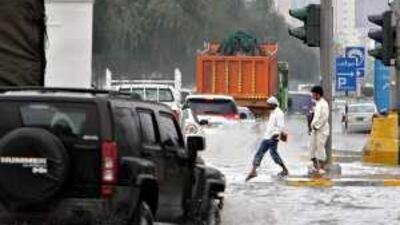The country's insurance industry watchdog plans to enforce a raft of new rules ranging from anti-money laundering to stricter licence and reserve requirements for insurers. The moves speed up the regulation of the country's heavily fragmented industry, caused in part by the lack of entry requirements for operators, where too many insurers and brokers chase too few premiums.
"A healthy insurance market depends on healthy well-capitalised market participants. A proliferation of too many insurers and brokers in a loosely regulated regime can undermine the strong pillar that the insurance industry needs to provide in a health economy," said Wayne Jones, a partner at Clyde and Co, the international law firm, in Dubai. The measures are aimed at weeding out financially weak insurers as well as those that lack serious underwriting skills and merely chase premiums for investment activity, experts say.
"We plan to issue the rest of the regulations in the next 12 months," said Fatima Ishaq al Awadhi, the deputy director of the UAE's Insurance Authority. Most of the regulations are aimed at boosting insurers' financial soundness and their ability to shoulder risk. The surge of activity comes after few visible changes in the first two-and-a-half years since the authority was established. Since last summer the authority has not granted any new licences for insurers or brokers. A subsequent clampdown on brokers to fulfil existing capital requirements led the agency to suspend 74 licences. Several more were given additional time to comply.
Historically many insurers have flocked to the Gulf region, including the UAE, to make money by investing in stock markets rather than underwriting risks, experts say. The absence of a thriving debt market and the strong exposure to highly volatile local markets made these investments comparatively risky. "There are many insurers who generate most of their income from investments. They don't make profits from underwriting. That model works well during good years, but it is not sustainable in this kind of climate," said Hussain Hadi, an expert on insurance and editor of the Middle East insurance trade magazine Policy.
"The industry would welcome action that encourages mergers and acquisitions activity, which has not been a feature of the GCC market historically. This is partly due to a historical lack of rules and regulations facilitating 'M and A' [mergers and acquisitions] activity in the insurance sector," said Mr Jones. As a result of low premiums, more insurers have begun chasing so-called "personal lines" such as motor insurance and health. Reinsurers are partially blamed for enabling the model. Without them, the insurers would not have had enough money to underwrite larger risks, critics say.
The UAE has about 60 insurers, 26 of which are foreign, and 150 brokers. The insurance penetration in GCC countries is extremely low and aggregate insurance premiums account for under 1 per cent of GDP - 2 per cent in the UAE - compared with between 5 and 15 per cent in Europe or the US. Motor insurance, because it is compulsory, is the strongest business line, followed by health and property. Life insurance products are starting to be introduced.
A fast-growing population and low insurance availability in the past have led to strong growth rates of about 25 per cent. Aggregate insurance premiums in GCC countries rose by 28 per cent last year compared with a worldwide rise of 3.4 per cent in nominal terms. The industry watchdog has circulated a draft code of conduct among insurers and is asking for their feedback. uharnischfeger@thenational.ae

